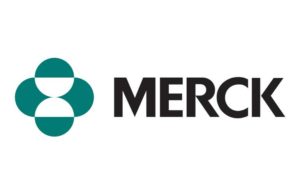 Merck & Co. has announced its third quarter results, projectings its full-year 2023 revenue to be in the range of $59.7 billion to $60.2 billion. That’s roughly in line with the guidance from Pfizer, which recently adjusted its revenue forecast from $58 billion to $61 billion.
Merck & Co. has announced its third quarter results, projectings its full-year 2023 revenue to be in the range of $59.7 billion to $60.2 billion. That’s roughly in line with the guidance from Pfizer, which recently adjusted its revenue forecast from $58 billion to $61 billion.
As Pfizer deals with reduced demand for COVID-19 products, which helped catapult its overall revenue beyond $100 billion in 2022, Merck saw a surprise Q3 lift from Lagevrio (molnupiravir), whose sales were up 47% to $640 million.
Other top sales drivers include the oncology stalwart Keytruda, which generated $6.3 billion in sales, marking a 17% year-over-year increase. Sales for the HPV vaccine Gardasil/Gardasil 9 amounted to $2.6 billion, reflecting a 13% growth.
Merck Q3 2023 revenue remains robust
The figures keep Merck in the upper echelon of Big Pharmas. In 2022, the company was the second largest with $59.3 billion in overall revenue compared to Pfizer’s $100.3 billion and number-three AbbVie’s $58.1 billion.
Novo Nordisk has also entered the upper ranks of the industry in 2023, thanks in large part to strong sales of semaglutide.
Merck shares jumped almost 3% in late-afternoon trading to $106.66 after announcing the results. Year-to-date, its share price is down about 4%.
Keytruda’s growth and Merck’s strategy to sustain success
The company’s oncology blockbuster Keytruda remains a strong seller. In its Q3 earnings announcement, Merck noted that the drug continues to experience significant growth, with sales increasing 17% to hit $6.3 billion. Increased global uptake in earlier-stage indications, such as triple-negative breast cancer (TNBC) and renal cell carcinoma (RCC), are helping to drive the growth. In its presentation, the company also noted that it won FDA approval for Keytruda as a neoadjuvant and adjuvant treatment for some patients with resectable non-small cell lung cancer.
Keytruda’s patent protection, however, is set to expire around 2028. To deal with the potential revenue loss, the company is actively seeking to diversify its portfolio and pipeline. In June, it completed its acquisition of Prometheus Bio for $10.8 billion. This deal brings a potential new blockbuster drug for inflammatory bowel disease to Merck’s pipeline. The drug, which is currently in development, binds to a ligand associated with intestinal inflammation and fibrosis.
While the company has recently focused on oncology and vaccines, the Prometheus acquisition bolsters its standing in immunology.
Merck also recently announced a clinical and commercial collaboration with Daiichi Sankyo for three antibody-drug conjugates.